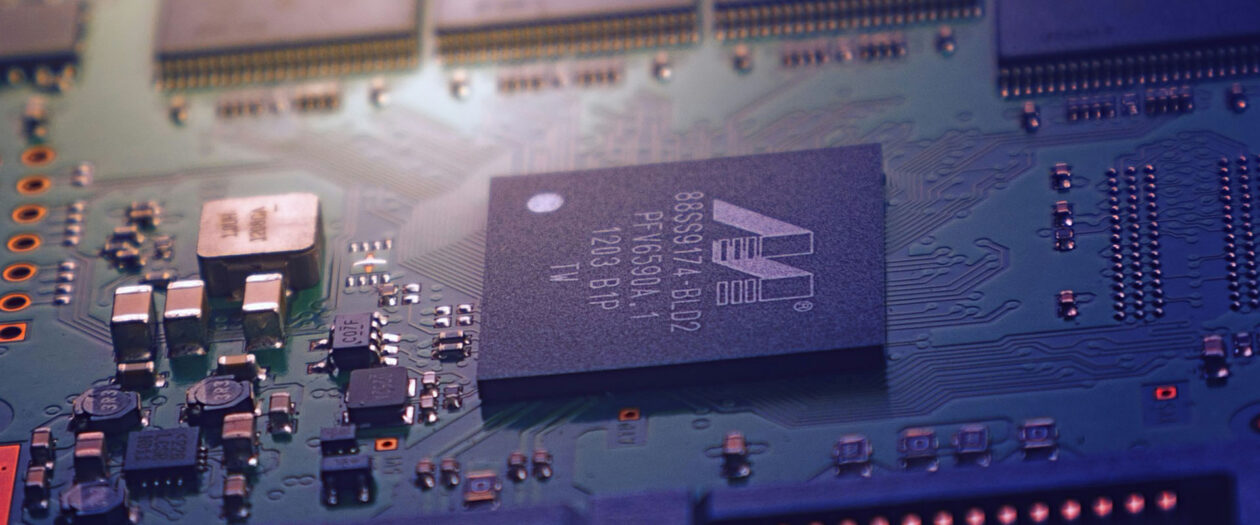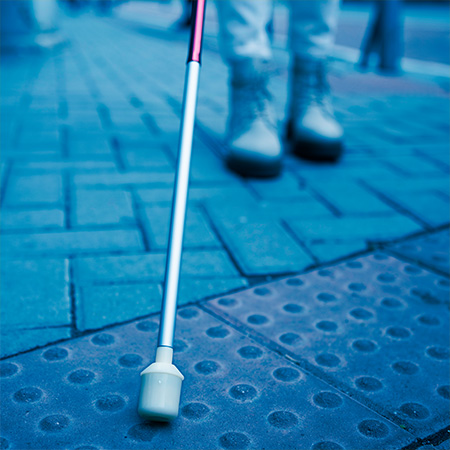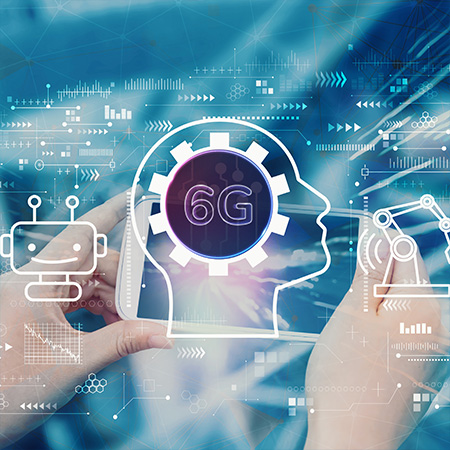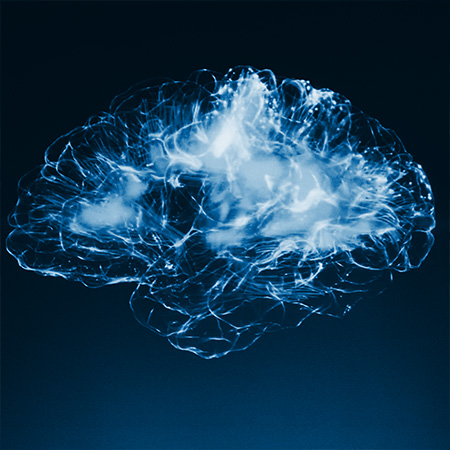Discover LISITE’s innovative projects
At Isep’s LISITE, our research projects tackle today’s major technological challenges, from energy management of connected objects to urban transport optimization, data protection and healthcare. We design innovative, practical solutions, such as autonomous guidance systems for the visually impaired, connected biomedical sensors, and data management platforms for agriculture and the urban environment. With a strong industrial base and prestigious partnerships, LISITE places scientific excellence at the service of concrete applications in a wide range of sectors, from healthcare to smart cities.
Projects in progress
HERBS project
Setting up autonomous and safe guidance solutions for the visually impaired
The aim of this project is to create a safe, autonomous guidance solution for the visually impaired, facilitating their movement to specific locations, whether indoors or outdoors, even in unfamiliar environments. The solution is based on a precise localization strategy, adapted to well-defined usage scenarios. To achieve this, the project exploits radio “fingerprints” (propagation patterns) and generates synthetic data, enhanced by supervised and semi-supervised artificial intelligence models, to guarantee enhanced accuracy and robustness. A demonstrator will be developed to assess the effectiveness of this innovative solution.
Leaders: Wafa Njima et Lina Mroueh
Partners: CNAM et N-VIBE
Funding: ANR
Period: Janvier 2024 – Décembre 2026
Project 6G BRAINS
A radio-light network for massive connectivity
Following on from the IoRL project, Isep is taking part in the European research project “6G BRAINS”, funded by the Horizon 2020 program with a grant of 5.7 million euros. This project aims to develop a 6th generation (6G) network incorporating reinforcement learning to optimize connections in radio-light networks. By 2030, 6G should offer fifty times the throughput of 5G, with a focus not only on speed, but also on the integration of artificial intelligence and the exploitation of new frequency bands (THz, mmW and OWC) for increased capacity, reliability and latency.
The technologies resulting from 6G BRAINS will be applied to a variety of sectors, including industry 4.0, intelligent transport and e-health. This project is helping to lay the foundations for global standardization of B5G and 6G technologies, particularly for industrial environments.
Leader: Xun Zhang
Funding: EU-H2020
Period: January 2021 – December 2023
Applications: Connected city, Industry 4.0
Treat cSVD project
Towards new therapies for diseases of the small vessels of the brain
The TRT_cSVD project aims to develop innovative therapies for diseases of the small vessels of the brain (SVD), responsible for 30% of strokes and a large proportion of age-related cognitive decline. Today, there is no specific treatment for these conditions. By focusing on the genetic forms of these diseases, notably CADASIL (the most common), Isep is helping to identify biomarkers of microvascular alterations and to create clinical tools. Researchers are using high-resolution imaging of retinal arteries, which show similar alterations to cerebral vessels, to develop segmentation methods for analyzing arterial walls and bifurcations.
Leader: Florence Rossant
Funding: ANR Investissements d’Avenir (RHU 2nd call)
Period: December 2016 – present
Applications: Clinical study of vascularization disorders, involved in pathologies such as diabetes and cerebrovascular disease.
Completed projects

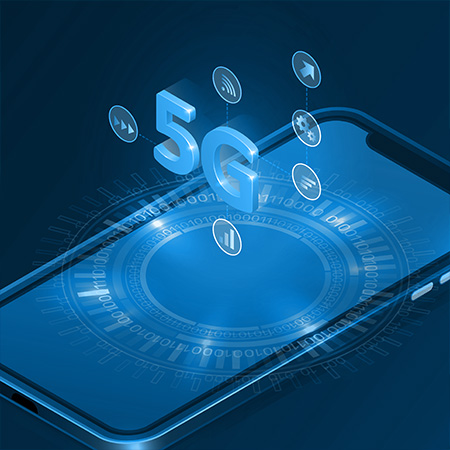

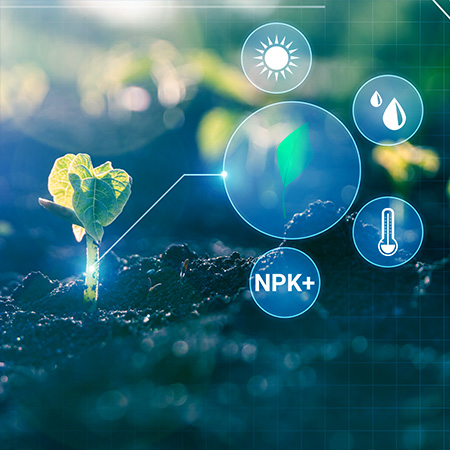
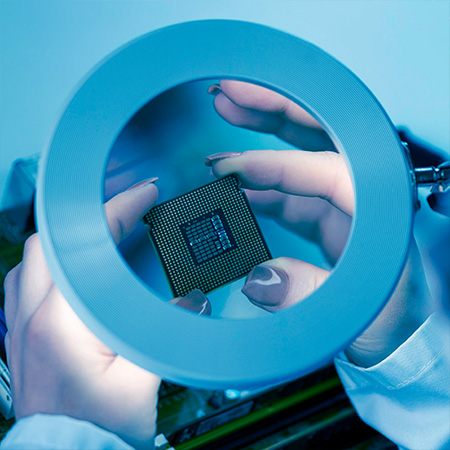


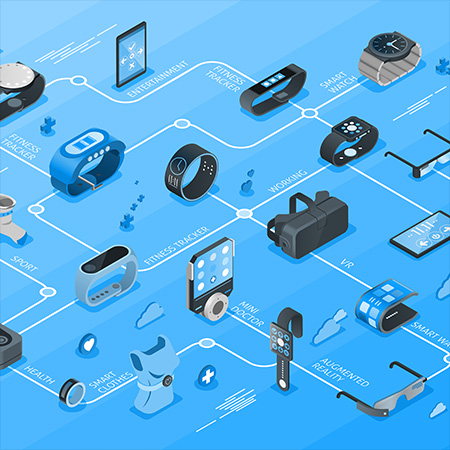

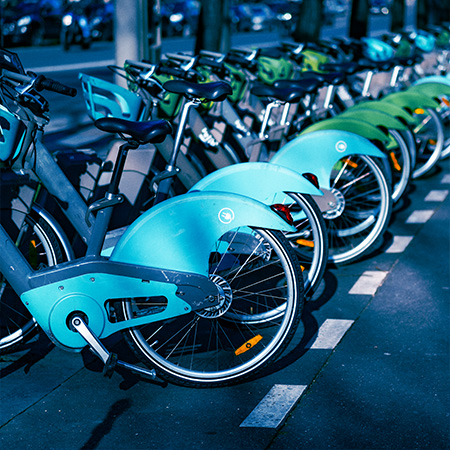
Fed4FIRE+ project
The world’s largest federation of test beds for the next-generation Internet
Fed4FIRE+ is a Horizon 2020-funded project to extend and enhance the world’s largest federation of testbeds for the Next Generation Internet (NGI). The successor to the Fed4FIRE project, this initiative offers open and reliable infrastructure to Europe’s research and innovation communities, including 5G PPP projects. The project, which ended in June 2022 after more than five years, leaves a technological legacy that continues with SLICES-RI, a scientific infrastructure dedicated to experimental studies in computing and communications.
Funding: EU-H2020
Period: 2022 – 2023
IoRL project
The Internet of the future for optimized indoor connections
The IoRL (Internet of Radio Light) project, co-funded by the European Commission, explores a new path for wireless Internet in buildings where Wi-Fi is limited or absent. By combining Li-Fi (Internet of Light) and 5G, IoRL aims to offer more efficient and secure Internet access in complex indoor environments.
The first phase of the project focused on the development of technical architectures and the definition of use cases, with tests carried out in various locations such as the Musée Français de la Carte à Jouer in Issy-les-Moulineaux, the Madrid metro, housing in the UK and a supermarket in China. The project is also helping to create global standards for next-generation Internet, supporting the International Telecommunication Union and contributing to 5G standards.
Leader: Xun Zhang
Funding: EU-H2020
Period: June 2017 – May 2020
Applications: Indoor positioning, communication in smart homes, museum guidance, public transport navigation
EPHYL project
Improving the energy efficiency of connected objects
Faced with the explosion of connected objects, estimated at over 100 billion by 2020, the EPHYL project addresses the major energy challenges associated with the Internet of Things (IoT). This project aims to propose, evaluate and test improvements for cellular networks dedicated to connected objects, optimizing the management of radio resources and reducing the energy consumption of devices. EPHYL explores and compares short- and long-range transmission solutions, such as Low Power Wide Area (LPWA) networks including Sigfox and LoRa, to identify more sustainable and efficient technologies.
Leader: Lina Mroueh
Funding: ANR
Period: 2017 – 2020
Applications: Development of new waveforms to improve transmission in IoT networks
>Website
IDEAC Project
Environmental data integration for agro-climatology
The IDEAC project supports more efficient and sustainable agriculture by exploiting large-scale weather and climate data. By integrating various data streams (sensors, web services, etc.) on a cloud platform, the project aims to improve the quality of climate data using collaborative data mining algorithms. This innovation makes it possible to produce accurate weather forecasts at very short notice, an asset for anticipating climatic risks such as frost, which is crucial for the agricultural sector.
Leader: Raja Chiky
Label: Cap Digital
Funding: European Regional Development Fund (ERDF)
Period: October 2018 – April 2020
Applications : Prediction of climatic risks for agriculture
BIOMEN project
Innovative magnetoelectric biomedical transducers
The BIOMEN project explores a new technology for implantable, connected and autonomous biomedical devices. By combining the properties of magnetoelectric transducers, this device enables remote powering via a low-frequency magnetic field while offering the performance of piezoelectric materials, all encapsulated in optimal biocompatibility. This miniaturized transducer could power various sensors implanted in the body, such as those measuring blood pressure, temperature or other physiological data.
Leader: Kévin Malleron
Funding: ANR
Period: October 2016 – December 2019
Applications: Powering implanted biomedical sensors (blood pressure, temperature)
Milestones: In vivo remote powering tests in early 2020
DAP project
Automatic pollen detection
The DAP project aims to automate the detection, recognition and counting of allergenic pollens in France, to improve allergy prevention. Today, these tasks are performed manually by operators who analyze pollen samples under a microscope. The project proposes to use image processing and machine learning technologies to automate this process, reducing the workload during periods of heavy pollination and providing real-time alerts on allergy risks.
Leader: Maria Trocan
Collaborators: Patricia Conde-Cespedes, Frédéric Amiel
Funding: Collaborative
Period: October 2018 – June 2019
Applications : Real-time alert for allergy prevention
Partners: LSCE, CEA, RNSA, Université Toulouse Paris Sabatier, IRT Saint Exupéry, STAE Toulouse
REAF project
Autonomous, flexible energy recovery systems
The REAF project focuses on the design of mechanical energy recovery systems in vibratory environments, intended to power wireless sensors in flexible devices. These sensors can be used to monitor critical variables, useful both for the operation of objects and during their manufacture. Applications include embedded systems in vehicles, electrical machines and the industrial Internet of Things (I-IoT).
Leaders: Alexis Brenes (system design and optimization), Mariam Dème Camara (flexible electronic circuits)
Financing: Private industry
Period: Phase 1: feasibility study (November 2018 – May 2019), end in 2022
Applications: Measurement of wear and tear on industrial parts, pedestrian navigation aid, sports activity supervision
Partners: Laboratoire de Recherches et de Contrôle du Caoutchouc et des Plastiques
USNB project
Digital tools and Civic Tech
The USNB (Universal Social Network Bus) project explores the development of interfaces to efficiently connect mobile devices, connected objects and users, thus fostering community engagement and public participation. This interface aims to overcome the heterogeneity of different components to enable detection, analysis and prediction processes of common interest on an urban scale. The project focuses in particular on Civic Tech applications, helping to strengthen the relationship between citizens and authorities.
Leader: Rafael Angarita
Funding: Inria ADT, Inria CORDI-S, Civic Budget EIT Digital, Inria@SiliconValley
Period: 2016 – 2019
Applications: Civic Tech for public participation, interconnection of heterogeneous systems
Partner: INRIA
WAVES project
Semantic data flow management system
The WAVES project aims to design an innovative platform capable of managing vast data streams from a variety of sources in real time. This platform uses an advanced algorithmic approach to process, enrich and interconnect this data in a distributed, high-speed environment. Key challenges include filtering, semantic reasoning and processing distribution, enabling efficient scalability and intelligent management of massive flows.
Leader: Zakia Kazi-Aoul
Collaborators: Yousra Chabchoub, Raja Chiky
Funding: FUI (Fonds Unique Interministériel)
Period: 2014 – 2017
Applications: Supervision of drinking water transport and distribution networks
Partners: ATOS, ONDEO SYSTEMS, Institut Gaspard Monge, Data_Publica
BSS Project
Modeling, Analysis and Optimization of Self-Service Bicycle Systems
The BSS project is dedicated to the study and optimization of Self-Service Bicycle Systems (SSBS) in urban environments, such as those in Paris and other major cities. One of the major challenges is the heterogeneity between stations, some of which are in high demand due to their location. The project analyzes VLS usage based on real data, using Machine Learning techniques such as clustering and anomaly detection. The ultimate aim is to propose ecological solutions that encourage users to balance the system, for better resource management.
Leader: Yousra Chabchoub
Funding: PGMO PGMO (Gaspard Monge Program for Optimization)
Period: October 2013 – September 2015
Applications: Potential extension to self-service electric car systems
Partners: Laboratoire d’Informatique de Polytechnique, INRIA, IFSTTAR, Université Paris Nanterre

